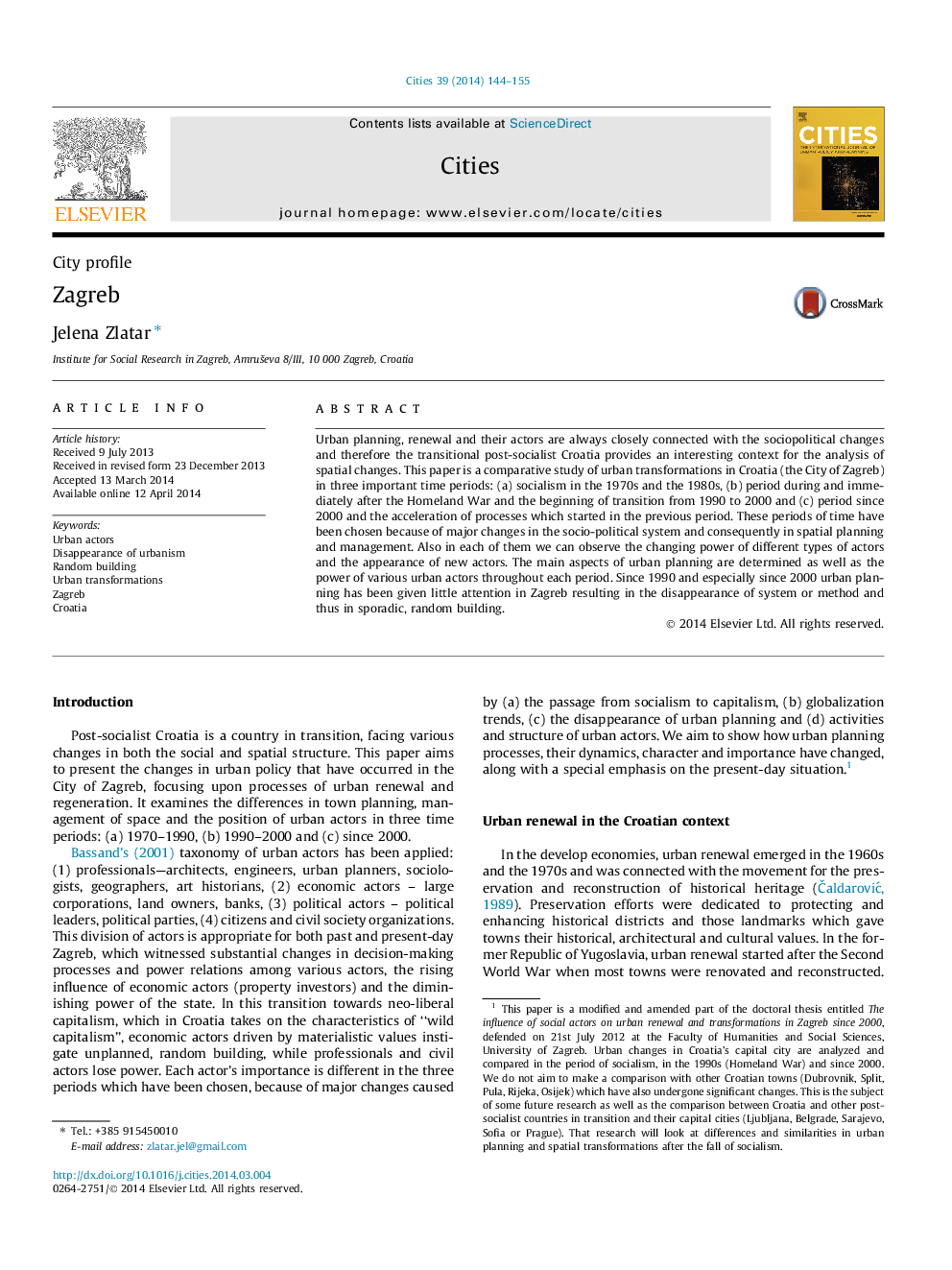| Article ID | Journal | Published Year | Pages | File Type |
|---|---|---|---|---|
| 7418798 | Cities | 2014 | 12 Pages |
Abstract
Urban planning, renewal and their actors are always closely connected with the sociopolitical changes and therefore the transitional post-socialist Croatia provides an interesting context for the analysis of spatial changes. This paper is a comparative study of urban transformations in Croatia (the City of Zagreb) in three important time periods: (a) socialism in the 1970s and the 1980s, (b) period during and immediately after the Homeland War and the beginning of transition from 1990 to 2000 and (c) period since 2000 and the acceleration of processes which started in the previous period. These periods of time have been chosen because of major changes in the socio-political system and consequently in spatial planning and management. Also in each of them we can observe the changing power of different types of actors and the appearance of new actors. The main aspects of urban planning are determined as well as the power of various urban actors throughout each period. Since 1990 and especially since 2000 urban planning has been given little attention in Zagreb resulting in the disappearance of system or method and thus in sporadic, random building.
Related Topics
Social Sciences and Humanities
Business, Management and Accounting
Tourism, Leisure and Hospitality Management
Authors
Jelena Zlatar,
